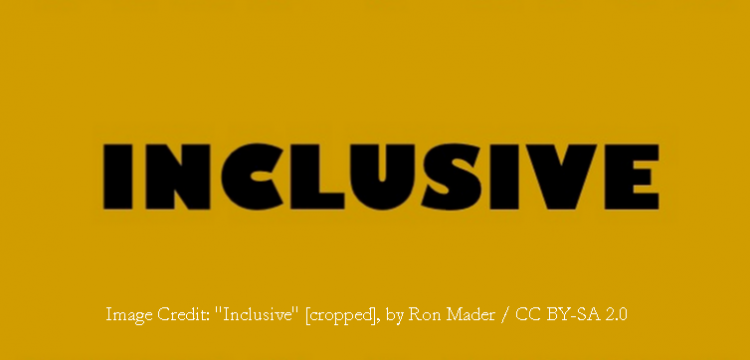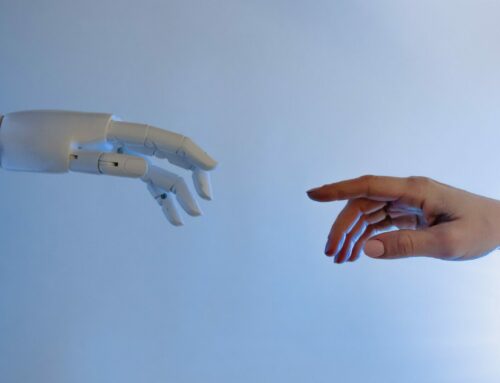Towards an inclusive global knowledge society
Patrick Blessinger
St. John’s University (NYC) and International HETL Association
The second half of the 20th century was characterised as a period of enormous expansion of higher education worldwide, especially through opening access by removing long-standing ethnic, gender and class barriers.
As a result, the first half of the 21st century of higher education will most likely be characterised by its remarkable heterogeneity in terms of student diversity and institutional diversification. Higher education today reflects a system that has not only emerged into a more democratised system but also into a global power system.
Core issues in democratisation
The principles of democratisation impact on every part of higher education at both the macro and micro levels – not just access issues but also governance, management, policies, structures, processes and other core functions of higher education.
The process of democratisation has led to a diversification of institutional missions and a variety of delivery modes in order to meet the diverse needs of society and its stakeholders (for example, students, society, employers and policy-makers).
Democratisation of higher education has initially and naturally centred on access issues (that is, more equality or equity of access opportunities) and participation issues (that is, greater engagement in the teaching-learning process). Issues receiving less focus, until recently, have been completion issues (that is, students achieving expected learning outcomes upon graduation) and life success issues (that is, achieving career and personal goals).
The expansion and transformation of higher education have been shaped by both top-down and bottom-up reforms. Whereas access issues have been typically addressed by reforming admission policies and practices, for instance, through top-down government actions; participation and completion issues have been typically addressed through reforming teaching, learning, curricula, and assessment policies and practices, for example, through bottom-up innovations.
Institutions have attempted to address life success issues by making the learning process more personally meaningful and, at the same time, more professionally oriented.
Paradigm shift towards universalisation
At the social level, most nations have steadily moved in the direction of the universal access model, using a diversified system of institutional types, such as technical colleges, community colleges, liberal arts colleges, online universities, open access universities, research universities and hybrid institutions that combine different types.
At the institutional level, most nations have moved towards a diversified system of programmes such as continuing/further education, short courses, certificate programmes and professional development programmes for any stage of life or career.
The democratisation paradigm shift has naturally focused on increasing individual opportunities rather than focusing on prescriptive one-size-fits-all approaches. The reason for this is clear: at the macro level there is too much political, social and economic variability within nations and across nations and, at the micro level, there is too much variability in individual talents and motivations for a one-size-fits-all approach to work.
What is needed therefore is a highly flexible and adaptable global higher education system that is capable of responding to a wide variability of macro and micro contexts.
Overcoming institutional inertia
Efforts to fully democratise higher education are unlikely to succeed, however, unless basic inequities in society are also addressed and this includes moving from a mindset of exclusivity and elitism which tends to be oriented around power and privilege claims and towards a mindset of inclusivity and democracy which is oriented around justice and self-determination claims.
Institutional cultures tend to have high levels of inertia in maintaining traditional practices and mindsets. Institutions, therefore, tend to be highly stable (that is, resistant to change). Thus, moving from a mindset of exclusivity and towards a mindset of inclusivity (that is, progressing from an elite system of higher education to a universal system) is a monumental undertaking that has taken higher education decades to achieve.
However, even if all access barriers are removed (the input side) that impede the democratisation of higher education, the job market would still select graduates (the output side) based on its employment needs at the time. Presumably, this will always be the case due to the economic nature of the employment market.
Given this ever-present reality, higher education should be more focused on transforming the teaching-learning process to produce graduates who are more creative, adaptable, entrepreneurial and self-regulating lifelong learners. But simply providing people with more education (that is, quantity) is not sufficient – higher education must also provide education that is both personally meaningful and career relevant (that is, quality).
In short, a chief aim of higher education should be to cultivate higher degrees of personal agency within students. As a result, the demands placed on higher education institutions have become much more complex.
Towards an inclusive global knowledge society
Just as possessing rights cannot guarantee that one will live in a perfectly just society, possessing higher education cannot guarantee that one will find employment of a certain type but it can, if done effectively, equip one with better knowledge and skills by which to learn how to adapt to changing economic and social conditions.
Higher education reform is not a panacea and, by itself, it cannot completely solve all social problems, but it can and should play a major role in helping to alleviate those problems.
Educational policy-making is often a highly political process at both the social and institutional levels. Thus, higher education systems typically reflect the larger cultures they reside within and they are likely to preserve the status quo unless government policy-makers and institutional leaders actively exert leadership that moves higher education in a more positive direction – a direction that values educational diversity, inclusion and lifelong educational opportunities for all.
Given the huge importance of lifelong learning to the overall well-being of society and the economy, access to and participation in meaningful lifelong educational opportunities is one of the chief human rights issues of our generation. As such, the emerging global higher education system hints at the prospect of a more inclusive global knowledge society.
Patrick Blessinger is the founder and executive director of the International Higher Education Teaching and Learning Association and an adjunct associate professor of education at St John’s University in New York City, USA. He is co-editor with John P Anchan of Democratizing Higher Education: International comparative perspectives.
Note: this article also appears in the University World News blog at http://www.universityworldnews.com/article.php?story=20150929193529682
Suggested Citation:
Blessinger, P. (2015). Towards a more inclusive global knowledge society. Higher Education Tomorrow, Volume 2, Article 10, https://www.patrickblessinger.com/why-global-higher-education-must-be-democratised
Or
Blessinger, P. (2015). Towards a more inclusive global knowledge society. University World News, http://www.universityworldnews.com/article.php?story=20150929193529682
Copyright © [2015] Patrick Blessinger
Disclaimer
Opinions expressed in this article are those of the author, and as such do not necessarily represent the position(s) of other professionals or any institution.




